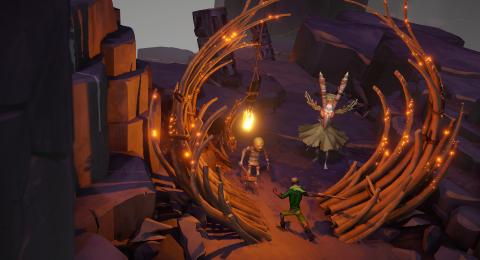
A few years ago, companies such as Ubisoft forced extreme DRM systems such as Starforce unto their customers before discovering the hard way around that that did them more harm than good.
Today, nearly two years after Ubisoft listened to its customers and dialed down its DRM intensity, Square Enix America’s Senior Manager of Business and Legal Affairs Adam Sullivan put it bluntly: the company's games will always be protected by DRM for one simple goal: to maximize profit.
"The primary benefit to us is the same as with any business: profit," he explained candidly.
"We have a well-known reputation for being very protective of our IPs, which does deter many would-be pirates," he claimed. "However, effectiveness is notoriously difficult to measure — in short, we rely on the data available to us through our sales team and various vendors, along with consumer feedback."
Needless to say, consumer feedback regarding DRM is usually negative and Sullivan knows it. "The key to DRM is that it can’t interfere with the customer’s ability to play the game," he said. "It’s not uncommon for people to get a new computer every few years, or to have multiple computers. Sometimes they don’t have reliable internet connections. There’s no perfect solution yet."
Nonetheless, DRM is here to stay as far as Square Enix is concerned. "So long as we’re concerned about things like data privacy, accounting sharing and hacking, we’ll need some form of DRM," the company's head of Legal Affairs asserted.








